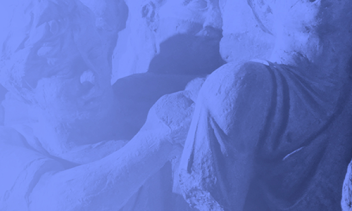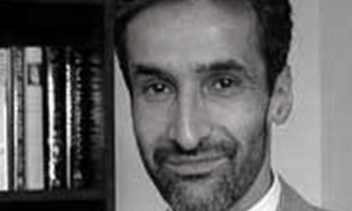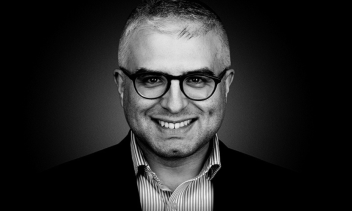This special edition Weekend Reader for Yom Kippur includes our favorite articles on religious change. View and download the full reader here.
It is all too common for caterpillars to become butterflies
and then maintain that in their youth they had been little butterflies.
Maturation makes liars of us all.
-G.E. Vaillant, Adaptation to Life
As we enter Yom Kippur, change is on our minds. Have we changed? Will we change? Will this year be different than the past year, or will it be more of the same?
Although a less common image in Jewish literature, the butterfly is a powerful metaphor for change. As the quote from Vaillant above indicates, the disparity between the caterpillar and the butterfly signifies one deep aspect of change: the disconnect we so often feel between who we are now and who we once were. Kathryn Schulz, the author of Being Wrong: Adventures in the Margin of Error, writes that:
It takes courage to leave our past selves behind. But it takes even more to carry some token of them with us as we go: to accept that we have erred, recognize that we have changed, remember with compassion our caterpillar past. As difficult as this can be, the dividends are worth it. “The main interest in life and work,” said Foucalt, “is to become someone else that you were not in the beginning.”
Seeing ourselves as we once were—and seeing others that are where we once were—can be profoundly uncomfortable, as it serves as a reminder of the fact that we once were different. It is more comfortable to forget our caterpillar past, just as it is more comfortable to forget that our future selves will probably also try to forget our present selves. Even as we now emerge as butterflies to our past, we are also caterpillars to our future. We will yet change, and in all likelihood look back with a smile (or a grimace) at who we once were. And best of all—such is life. The process of becoming, ever becoming, is the process of life. It is not for nothing that God goes by the name “I am becoming that which I am becoming”—perhaps to become is godly.
Throughout history, Yom Kippur has been a time of such change, such becoming. The book of Jonah, which we read on Yom Kippur, is a book about change: change by the occupants of Tarshish, by the prophet Jonah, and perhaps even by God.
Change is not immediate. Nor is it always easily apparent or rapturous in quality, but it is always present, even if under the surface.
In 1913, a 26-year-old Franz Rosenzweig was on the cusp of conversion to Christianity, until a fateful Yom Kippur. Something happened that day. Rosenzweig never articulated what exactly he felt, but that day was a turning point in his life. This was his “why I stayed” moment, and the rest of his life was spent immersed in Jewish learning. He founded the (original) Lehrhaus, “Freies Judisches Lehrhaus,” a center for intense engagement with Jewish and Western thought, and he joined with Martin Buber in penning a German translation of the Torah. In the words of his friend and biographer Nahum Glatzer: “Rosenzweig left the Synagogue a changed person. What he had thought he could find in the Church only—faith that gives one an orientation in the world—he found on that day in the Synagogue.”
Two years earlier, in Morocco, another German theologian found God on Yom Kippur. It was 1911, and Rudolf Otto, a young, Protestant scholar on a trip to Northern Africa, visited a shul in the town of Mogador on Yom Kippur. Although the setting was simple, Otto was stunned by the power of the moment and the liturgy. It impressed upon the young Otto a long and fruitful interest in the experience of the holy, which culminated in his iconic book, The Idea of the Holy, in which he investigates the holy.
In Cynthia Ozick’s short story “The Butterfly and the Traffic Light,” two characters, Isabel and Fishbein, consider the caterpillar-butterfly dynamic:
Isabel frowned with logic. “But it’s only that the caterpillar’s future is longer and his fate farther off. In the end he will die too.”
“Never, never, never,” said Fishbein; “it is only the butterfly who dies, and then he has long since ceased to be a caterpillar. The caterpillar never dies. Neither to die nor to be immortal, it is the enviable state, little dear, to live always at the point of beautiful change! That is what it means to be extraordinary…
There are millions of caterpillars, and not one of them is intended to die, and they are all extraordinary. Your aim,” he admonished…” is to avoid growing into a butterfly. Come,” he said, and took her hand, “let us live for that.”
What does it mean to live forever as a caterpillar? Maybe the caterpillar is more honest than the butterfly. The butterfly dies, but the caterpillar is immortal. The butterfly has changed, but the caterpillar is ever about to change. On the cusp of change, the caterpillar is always humble. The caterpillar knows that everything can change—the hard held positions and beliefs that we hold on to one day can soon be transformed.
This Yom Kippur, in the humble light of the possibility for change, we offer a sampling of our favorite articles on religious change. Change has many faces, reflected in the articles here—Kelsey Osgood’s reflections on her own religious change, David Bashevkin’s article on Jonah, Adrian Chen’s portrayal of one woman’s de-radicalization through Twitter, James Winchell’s article on Franz Rosenzweig’s Yom Kippur, and Pini Dunner’s article on the Yabloner Rebbe. In each, the challenge and complexity of change is addressed. Change is not immediate. Nor is it always easily apparent or rapturous in quality, but it is always present, even if under the surface. Consider the caterpillar, as we humbly turn towards Yom Kippur.
Download the full reader for all of your Yom Kippur reading here.







